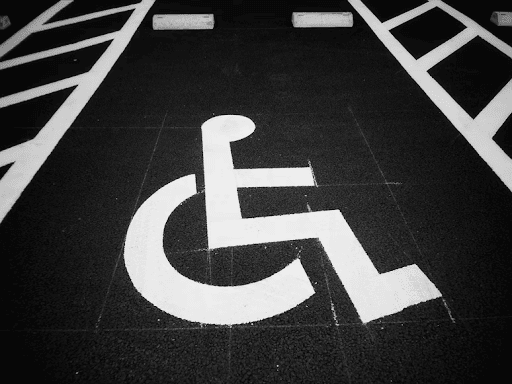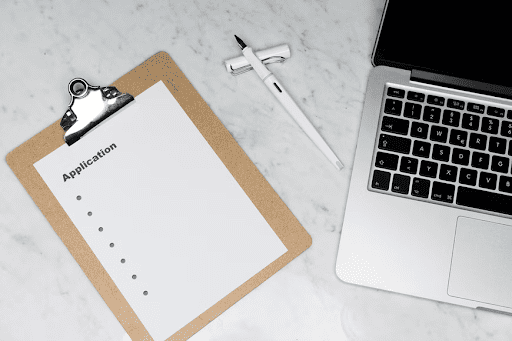Have you been impacted by physical/mental illness or injury preventing you from working and earning a job-related income? Then it might be time to apply for disability benefits.
When you apply for disability benefits, it’s an intensive process. There are many bureaucratic measures involved, and getting approved can be difficult, with national approval rates of 45.22%.
However, you can vastly improve your chance for approval when you apply for disability benefits by educating yourself on the application process. Knowing what the appropriate governing bodies expect and how to satisfy their scrutiny will put you one step closer to receiving the compensation you deserve.
Do you want to vastly increase your chances for approval for disability benefits? Then read on as we detail what you need to know before you apply for disability income:
What Type of Benefits Are You Applying For?

There are two common types of income when you apply for disability benefits: Supplemental Security Income (SSI) and Social Security Disability Insurance (SSDI).
When applying, you need to be sure you’re applying for the benefits that fit your circumstances, so it’s vital to know the differences between the two.
Supplemental Security Income (SSI)
Through SSI, older adults and disabled people of any age who have limited resources and income receive minimum basic financial assistance. While SSI benefits are federal, they are frequently supplemented via your given state.
Social Security Disability Insurance (SSDI)
Disabled individuals who have a qualifying work history–through their own employment or a spouse/parent–are supported by SSDI.
How Are SSI and SSDI Different?
First and foremost, when you apply for disability benefits through the SSI program, approval hinges upon age/disability and limited resources and income.
SSI recipients will also automatically qualify for Medicaid-supplied healthcare coverage in most states.
On the other hand, when you apply for disability income through the SSDI program, approval weighs your work credits and disability.
After 24 months of receiving disability payments as an SSDI recipient, you’ll automatically qualify for Medicare.
Note that anyone with amyotrophic lateral sclerosis (ALS) will be eligible for Medicare right away.
Is it Possible to Receive SSI and SSDI Simultaneously?
Be aware that if you apply for disability income, you can receive SSI and SSDI benefits simultaneously. You must be disabled, have limited resources/income, and have a work history to be eligible to receive both benefits.
Preparing You to Apply for Disability Benefits

Here are some of the nitty-gritty specifics you’ll need to know when you apply for disability income:
How Can You Apply for Disability Benefits?
Applying for SSI online requires that you’re an adult with a disability.
No online applications exist for a disabled child under 18 or a 65-plus senior without disabilities. People in these two categories have between 7am and 7pm to call 1-800-772-1213 (TTY 1-800-325-0778) from Monday to Friday.
Online applications for SSDI are available for applicants of any age. It’s also possible to apply by visiting your local office or calling the above phone number.
What Information Will You Need to Provide to Apply for Disability Benefits?
You won’t necessarily need to provide all these documents (some might not be applicable). However, you’ll want to compile as many of these documents together as possible to streamline the application process:
- Have your birth certificate or alternate proof of birth.
- Have your proof of US citizenship available.
- If you weren’t born in the US, have your lawful alien status documents on hand.
- Provided you had military service before 1968, get hold of your US military discharge papers.
- Compile your W-2 form(s). If applicable, be sure to have last year’s self-employment tax returns.
- You’ll need an Adult Disability Report. This document compiles further information regarding your injuries, conditions, illnesses, and work history.
- Compile all prior relevant medical evidence. This compilation of proof should consist of doctors’ reports, medical records, and recent test results.
- You’ll also want to collect any pay stubs, settlement agreements, or award letters. Also, gather anything else that speaks to temporary or permanent workers’ comp (or similar) benefits you’ve received.
Note that the United States Social Security Administration (SSA) accepts photocopies of the following:
- W-2 forms
- Self-employment tax returns
- Medical documents
However, the SSA typically requires the original version of most other documents (e.g., birth certificate), which will be returned to you.
While this process can be quite daunting, don’t hold back from applying because you’re missing any of these items. The SSA will do everything in its power to help you procure the appropriate documents.
What Questions Should You Expect from the SSA When You Apply for Disability Benefits?
Be prepared to answer the following questions when you apply for disability income:
- What is your name?
- What is your gender?
- What is your Social Security number?
- What is your birth name (if different from your current name)?
- What are your date and place of birth (name the state if you’re born in the US and name the country if you’re born elsewhere)?
- Before you turned five, was there a religious or public record of your birth?
- What is your citizenship status?
- Have you ever filed for Medicare, Supplemental Security income. or Social Security benefits? Has anyone else done so on your behalf? (The SSA will want to find out whose Social Security record you applied on).
- Have you ever used a different Social Security number?
- Before 1968, were you involved in active military service? If the answer is yes, what were your dates of service, and were you ever eligible for monthly benefits from a Federal civilian or military agency?
- Did you or your spouse work for the railroad industry at any point?
- Have you ever received Social Security credits through a different country’s system?
- Have you ever qualified, or do you expect to receive an annuity or pension after working with the US Federal government or a State or local subdivision?
- Are you currently married? If yes, what’s your spouse’s name, age/date of birth, and Social Security number?
- Provided you’ve been divorced, what are your former spouses’ age/date of birth and Social Security numbers?
- When and where did you get married (each time you got married)?
- If applicable, how and when did your marriage(s) end?
- What are the names of your unmarried children who are:
- Under 18
- Between 18-19
- In elementary or secondary school
- Disabled before 22-years-old
- Did you ever have a child less than 3-years-old living with you for a calendar year when you collected zero earnings?
- Were either of your parents dependent on you for 50% of their support when you became disabled?
- Have you collected earnings every year since 1978?
- What is your employer’s name? Or, what’s the nature of your self-employment?
- How much have you earned this year and last year?
- Have you received or do you expect to receive any money from an employer after developing your disability and being unable to work?
- Do you have any unsatisfied felony or arrest warrants due to flight escape or general escape from custody?
- What day did you become unable to work due to a condition, injury, or illness?
- Are you currently unable to work?
- Can you provide information about any workers’ compensation and/or similar benefits you intend to file for or have filed for? These benefits could be:
- Permanent or temporary
- Lump-sum or annuity payments you’ve received beforehand
- Paid by your employer or their insurance carrier
- Issued by federal, state, general government, or other private/public agencies
Some examples of worker’s comp-type benefits are Black Lung Benefits, Civil Service Retirement, Black Lung Benefits, Federal Employees’ Retirement, Federal Employees’ Compensation, etc.
From Date of Application, How Long Does it Take to Receive Your Benefits?
It takes, on average, three to five months to receive SSI or SSDI benefits from the date you apply.
Note that the above wait-time is an average and by no means a hard-fast rule. It can take a much shorter time or a drastically longer time.
For instance, anyone whose disability is severe enough to be on the Social Security’s Compassionate Allowances (CAL) list receives SSI/SSDI payments almost immediately. Applicants in these situations don’t even need to worry about a special application process.
What Causes Delays When You Apply for Disability Benefits?
With cases taking longer than three to five months, delays occur for a few reasons. Specifically, there’s no deadline for approvals, and the SSA is underfunded and understaffed.
Additionally, disability officers can struggle to get medical records from doctors and specialists. More to the point, your doctor’s office might not be responsive to SSA requests.
In fact, the above example is a far more common reason for approval or payment delays than examiners ignoring your application because they’re overstretched.
Delays also happen when applicants, themselves, fail to provide complete information. Examiners struggle with information gaps, which muddle the necessary communications.
Then, there are the treatments you’re undergoing as an applicant. The SSA doesn’t award benefits when disabilities aren’t severe. So, surgeries or rehabilitation that can better your condition gives the SSA a reason to delay the approval process to see if the treatments work.
How Can You Combat Delays When You Apply for Disability Income?
When you apply for disability benefits, you’re often in a precarious financial spot. Delays in approvals and receiving payments can be detrimental to your quality of life.
As such, you might want to consider hiring a lawyer to help you with the process. Some experts even provide free case evaluations to ensure your application is completed correctly.
While lawyers or advocates can’t directly speed up the approval or payment process, they’ll ensure flawlessly completed applications. This level of due diligence, in and of itself, gives your disability examiners every reason to expedite your case.
How Much Money Should You Expect When You Apply for Disability Income?
We’ll first point out that the SSDI or SSI benefits you receive won’t be impacted by the severity of your disability.
With SSDI specifically, your benefit payments will be based on your average lifetime earnings before your disability prevented you from working. The calculation also weighs your covered earnings, which is the portion of your salary removed by your employer for Social Security or FICA.
The SSA takes your average covered earnings over a period, calling it your average indexed monthly earnings (AIME).
These complied amounts are placed into a formula that determines your primary insurance amount (PIA), the baseline to establish your benefit.
On average, SSDI payments land between $800 to $1,800 per month.
Want to know more about the benefits you can expect to receive? The SSA has a benefits calculator to provide a reasonable estimate.
As for SSI payments, the federal average is $604 per month for adults, while children receive $683 per month. Note that your state might provide additional income on top of this number.
What Will Decrease Your Benefits After You Apply for Disability Income?
By having additional sources of income, your monthly benefits could be decreased.
For instance, when you collect Worker’s Comp, Public Disability Benefits, or a work-provided pension, it’s likely to take a chunk out of your SSI or SSDI.
Questions to Ask Yourself Before You Apply for Disability Benefits

Before you apply for disability income, it’s important to grasp how the process can be demanding and arduous.
While these factors shouldn’t deter you from the application process when you need SSDI, you should determine if filing for disability is your only option. You can avoid undue stress just by asking yourself the questions below:
How Disabled Are You?
Some disabilities are cut and dry, like spinal cord trauma (or the CAL list conditions).
However, there are other less visible disabilities that many Americans struggle with. Chronic pain or severe anxiety come to mind.
Start your application process by visiting the SSA’s Blue Book. It lists physical and mental impairments that qualify you automatically for SSDI benefits.
With that said, not all disabling conditions are listed in the Blue Book. All the same, you might have multiple health difficulties, and one of them might match something in the Blue Book’s criteria.
When you don’t satisfy a specific Blue Book listing, there’s a chance you’ll be approved for a medical-vocational allowance. Here’s what that entails:
- The SSA evaluates your residual functional capacity (RFC) or your level of functionality with your condition.
- Based on your RFC, the SSA determines if you can perform your former duties or if you can start a new type of work.
Will Your Disability Keep Your Out of Work for a Year (at least)?
The SSDI program is for people who are classified as entirely disabled. In other words, it’s a total disability program.
This distinction means you must have evidence showing you can’t perform at your job for at least 12 months.
While you might feel you’re disabled, returning to work in under a year means the SSA won’t deem you disabled and will deny your claim.
So, a standard knee or hip replacement won’t get you any SSDI benefits unless there are unforeseen complications.
Can Your Return to Work Eventually?
Collecting SSDI benefits is a long-term commitment. Plus, the SSA only has a certain amount of funding. Thus, they’re only going to dole out disability income to those who plainly cannot work in any capacity.
Mull over whether you can return to your current role at some point. You’ll also need to weigh whether you can adjust to different, less rigorous work.
Can You Be Approved for SSDI with Your Work History?
Eligibility for SSDI benefits depends on applicants being viewed as “insured” by the SSA.
Only individuals who have paid FICA taxes and worked are open to the SSDI program.
In fact, you need to have contributed a specific amount of money to FICA, which will be largely dictated by your age and how long you’ve worked. Furthermore, you must recently have worked a significant chunk of that time.
Provided you haven’t contributed enough taxes, you won’t be eligible to receive SSDI payments.
Are You Ready to Be Rejected?
Even if you deserve benefits, the odds are against your approval the first time you apply for disability income.
Now, of course, by getting a free case evaluation or hiring a lawyer, you vastly increase your chances of first-time approval. Even still, there are no guarantees.
Know that a first-time rejection is far from the end of the world. It happens frequently and is almost expected. The correct response is to appeal.
Speaking to the above point, don’t re-apply before filing an appeal for a rejected application.
Be As Informed As Possible When Your Apply for Disability Benefits

Knowledge is power. That phrase rings exponentially true when you apply for disability income.
Applying for SSI or SSDI requires a lot of preparation and effort. Informing yourself on what to expect every step of the way will reduce your stress levels and help ensure you don’t make any mistakes on your application.
By reading the above article, you now have a well-rounded knowledge base on how to apply for disability benefits. Thus, you’re one step closer to getting the financial support you deserve and living in comfort despite your condition.


